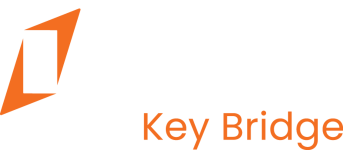The Tax Benefits of Creating Tax-Free Cash Flow Through Real Estate Investing
Disclaimer: PMI Key Bridge is not a tax professional. The information provided in this blog post is for educational purposes only. Always consult with a qualified tax specialist or CPA regarding your specific situation before making tax-related decisions.
One of the most remarkable and least understood advantages of real estate investing is the potential to generate positive cash flow that may be partially or completely tax-free. This seemingly magical financial phenomenon occurs when your property produces income while showing a paper loss for tax purposes—a benefit unique to real estate investment.
How Tax-Free Cash Flow Works in Real Estate
Imagine this scenario: Your rental property generates $24,000 in annual rental income. Your actual out-of-pocket expenses (mortgage, insurance, property taxes, maintenance, and management fees) total $18,000, leaving you with $6,000 in positive cash flow.
However, when you add in depreciation—a non-cash expense of perhaps $10,000 annually—your property shows a $4,000 tax loss ($24,000 income - $18,000 expenses - $10,000 depreciation).
The result? You have $6,000 in your pocket as real cash flow, but for tax purposes, you show a loss that can potentially offset other income. This is the essence of tax-free cash flow in real estate.
The Tax Benefits That Make This Possible
1. Depreciation Shield
Depreciation is the cornerstone of tax-advantaged real estate investing. The IRS allows you to deduct the cost of your building (not the land) over 27.5 years for residential property or 39 years for commercial property. This deduction requires no out-of-pocket expense yet provides a significant tax shield for your rental income.
2. Mortgage Interest Deduction
Unlike primary residences, which now have limits on mortgage interest deductions, investment properties still enjoy full deductibility of mortgage interest. This means that while your mortgage payment builds equity (a form of savings), the interest portion is fully tax-deductible.
3. Operating Expenses
All ordinary and necessary expenses for managing, maintaining, and renting your property are deductible. This includes property management fees, maintenance costs, insurance, utilities, travel expenses related to the property, and professional services.
4. Passive Activity Rules and Exceptions
While rental real estate is generally considered a passive activity (with losses that can only offset passive income), there are important exceptions:
Active Participation Exception: If you actively participate in your rental activities and your modified adjusted gross income is less than $100,000, you can deduct up to $25,000 in rental losses against your other income.
Real Estate Professional Status: If you qualify as a real estate professional (by meeting specific time requirements in real estate activities), your rental activities may not be considered passive, allowing losses to offset any type of income without limitation.
Long-Term Wealth Building Through Tax-Advantaged Cash Flow
The tax benefits of rental property don't just provide immediate advantages; they contribute to a powerful long-term wealth-building strategy:
1. Increasing Cash Flow Over Time
As rents rise with inflation while your fixed-rate mortgage stays constant, your cash flow tends to increase over time. Meanwhile, the depreciation deduction continues, maintaining the tax advantages even as your actual profitability grows.
2. Paying Down Mortgage with Pre-Tax Dollars
Because rental income can be offset by depreciation and other deductions, you're essentially using pre-tax dollars to pay down your mortgage principal—building equity without paying taxes on the income used to create that equity.
3. Potential for Continuous Tax Deferral
Through strategic use of 1031 exchanges (covered in another blog post), you can defer capital gains taxes when selling properties and reinvesting. Combined with the step-up in basis at death, it's possible to build significant wealth through real estate that may never be subject to capital gains tax.
What This Means for Property Owners Working with a Property Manager
For investors who are hesitant about real estate or accidental landlords concerned about costs, understanding tax-free cash flow reveals the true economics of rental property ownership:
Management Fees in Perspective: When you understand that property management fees are not only tax-deductible but part of a system that can generate tax-advantaged income, the value proposition of professional management becomes much clearer.
Record-Keeping for Maximum Benefits: Professional property management companies like PMI Key Bridge maintain detailed financial records that help you capture every deductible expense and maximize your tax advantages.
Freedom to Focus on Wealth Building: While your property manager handles the day-to-day operations, you can focus on the strategic aspects of building your real estate portfolio and optimizing your tax position.
Passive Investment with Active Tax Benefits: With professional management, you can enjoy the hands-off nature of passive investment while potentially qualifying for the active participation exception for tax purposes.
Scaling Your Portfolio: As you understand and experience the tax advantages of one or two properties, you may feel more confident expanding your real estate holdings—growing your wealth-building capacity while your property manager handles the increased operational complexity.
The concept of tax-free cash flow illustrates why real estate has created more millionaires than perhaps any other investment vehicle. It combines current income, equity building, appreciation potential, and remarkable tax advantages in a single investment.
For those who have been hesitant to invest in rental property due to concerns about costs and management headaches, understanding these tax benefits often transforms the equation. What might appear to be a modest return based on simple cash flow calculations can be significantly more attractive when tax advantages are factored in.
And with professional property management from PMI Key Bridge, you can access these benefits without dealing with tenants, toilets, and trash—the traditional downsides of rental property ownership.
PMI Key Bridge opens doors to a better life by providing high-quality service in property management with professionalism and integrity. Contact us today to learn how we can help you access the tax advantages and wealth-building potential of real estate investment.



